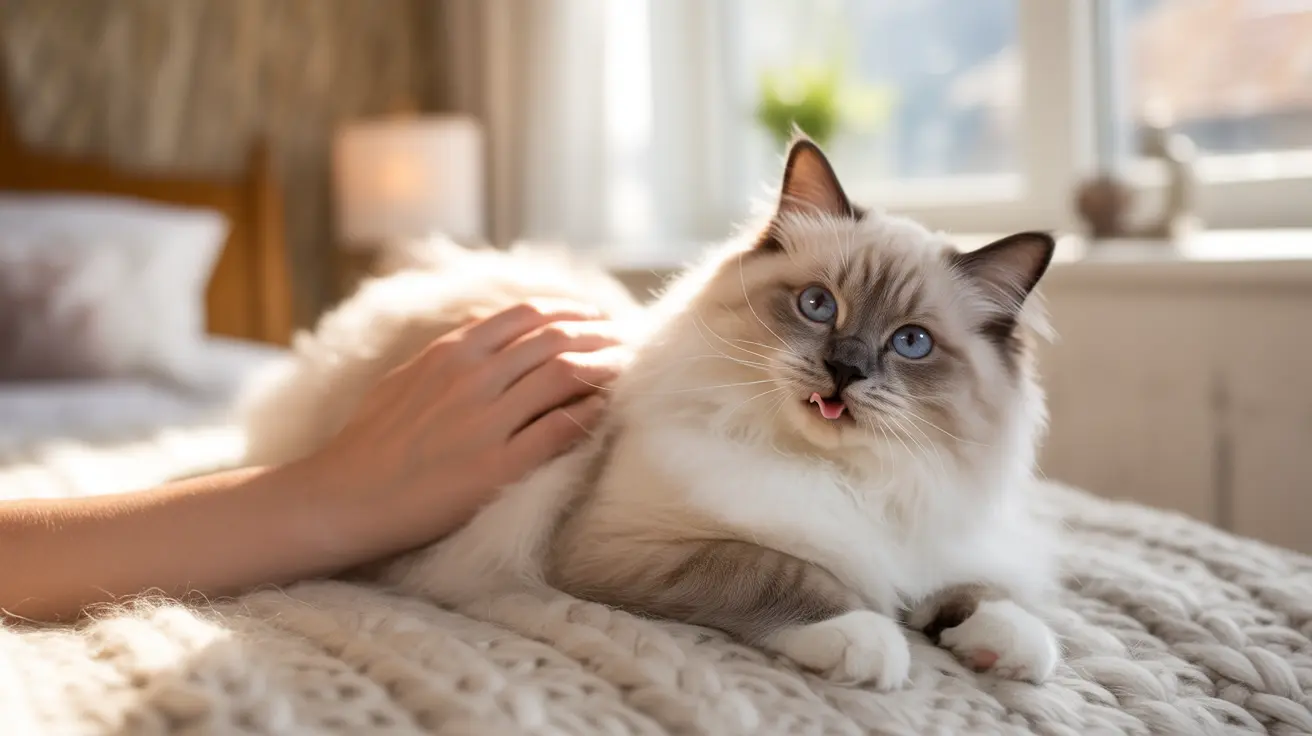If you've ever woken up to your cat gently nibbling your ear or experienced unexpected ear bites during cuddle sessions, you're not alone. This peculiar behavior is actually quite common among domestic cats, and understanding why cats bite ears can help strengthen your bond with your feline friend.
Let's explore the various reasons behind this behavior and learn when it's harmless affection versus when you might need to take action.
The Science Behind Cat Ear Biting
Cats use their mouths to explore and interact with their world, and ear biting is often an extension of natural feline social behaviors. When your cat bites your ear, they're typically engaging in one of several instinct-driven actions that have evolutionary roots.
Social Bonding and Grooming
In the wild, cats groom each other as a way to strengthen social bonds and show affection. When your cat nibbles your ear, they're often treating you as part of their family group, engaging in what's known as allogrooming – the social grooming behavior observed between cats who trust each other.
The Attraction to Earwax
Surprisingly, some cats are drawn to human ears because of earwax. The fatty acids and proteins present in human earwax can be particularly appealing to cats, leading them to investigate with their mouth and tongue.
Common Reasons for Ear Biting
Showing Affection
The most common reason for ear biting is affection. These "love bites" are typically gentle and accompanied by purring, head-butting, or kneading. Your cat is essentially saying, "You're my favorite human!"
Attention-Seeking Behavior
Cats quickly learn which actions get a response from their owners. If ear biting has successfully gained your attention in the past, your cat may use this behavior when they want something, whether it's food, play, or simple acknowledgment.
Play and Predatory Instincts
Your ears, especially when you're moving in bed or fidgeting, can trigger your cat's natural hunting instincts. The movement and warmth of human ears make them particularly tempting targets for playful cats.
When to Be Concerned
While most ear biting is harmless, there are situations that warrant attention:
- Aggressive biting accompanied by hissing or growling
- Sudden changes in biting behavior
- Biting that breaks the skin
- Excessive or obsessive biting
How to Respond to Ear Biting
If your cat's ear biting becomes problematic, try these strategies:
- Redirect their attention to appropriate toys
- Establish consistent feeding times to prevent food-seeking behavior
- Provide environmental enrichment through climbing spaces and interactive toys
- Use positive reinforcement to encourage alternative behaviors
Frequently Asked Questions
Why does my cat gently bite or nibble my ear—is it a sign of affection?
Yes, gentle nibbling or ear biting is typically a sign of affection. This behavior mimics the grooming patterns cats use with their feline family members and indicates that your cat views you as part of their social group.
Could my cat be biting my ear because it's attracted to the smell or taste of earwax?
Yes, some cats are attracted to human earwax due to its fatty acid content. While this may seem strange to us, it's a normal behavior driven by their keen sense of smell and natural curiosity.
How can I tell if my cat's ear biting is playful behavior or a sign of overstimulation?
Playful biting is usually gentle and accompanied by purring and relaxed body language. Signs of overstimulation include tail twitching, skin rippling, or dilated pupils. If you notice these signs, give your cat space to prevent escalation.
What does it mean if my cat bites my ear to get my attention, and how should I respond?
Attention-seeking ear bites are learned behaviors. The best response is to ignore the biting and only give attention when your cat displays appropriate behavior. This helps prevent reinforcing unwanted actions.
When should I be concerned about my cat's ear biting and seek veterinary advice?
Consult a veterinarian if the biting becomes aggressive, breaks skin, or is accompanied by other behavioral changes. These could indicate underlying medical issues or stress that requires professional attention.
Understanding why your cat bites your ear can help you better respond to this behavior and strengthen your bond with your feline companion. Remember that most ear biting is affectionate or playful, but always monitor for changes that might indicate underlying issues.






